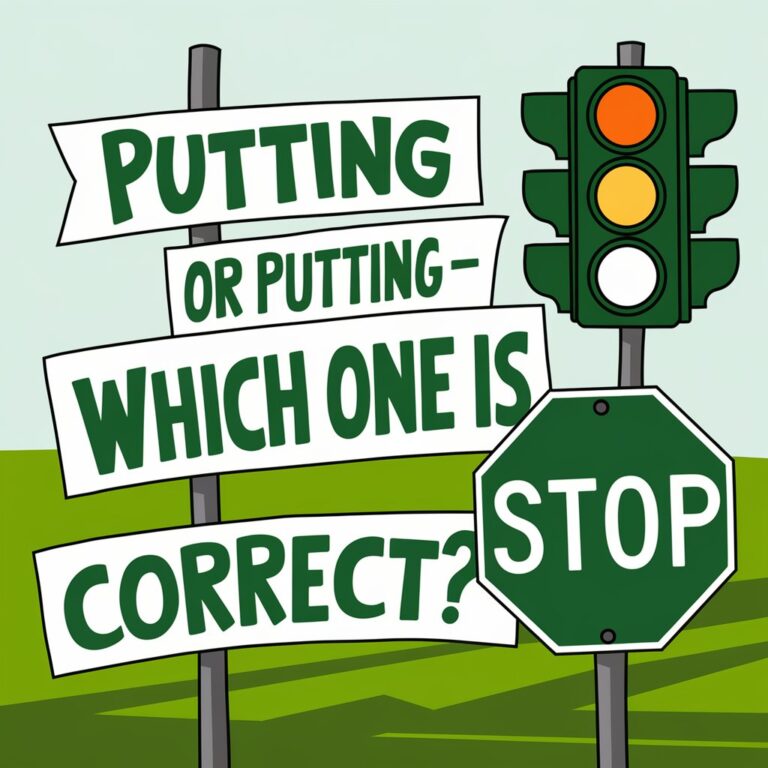Acception vs Exception Unlock The Secrets
Acception vs Exception” are easily confused because they sound similar, yet they function differently and have different meanings. “Acception” is the process of accepting or receiving something, usually in terms of interpreting or comprehending something in a certain manner. It’s a less frequently used word in contemporary English but can be encountered in works from earlier periods or in official writing.
Otherwise, “Exception” is a common word that refers to something which is an exception to a rule or principle. Something which is an exception does not fit into the common pattern or rule. The word is applied frequently in logic, law, and in common usage to refer to exceptions that are not by the rules.

Pondering the contrast between these two words can avert confusion in speech and text. While “acception” puts into consideration the meaning of accepting or cognizance, “exception” implies the notion of exception or departure. Taking cognizance of using both may be a boost to your linguistics skills as well as to better communication.
Overview
“Acception” and “Exception” are two words that are confused because they have the same sound, but have different uses. “Acception” is to accept or receive something, commonly in more official or archaic situations. It is a subject of accepting or understanding something in a certain way.
On the other hand, “Exception” is a term that is so broadly used, with the implication that something does not fit the overall rule or norm. It is the cases or instances that are reserved outside the normal pattern or the law. Understanding the difference between the two helps to prevent confusion and being able to express oneself appropriately in the discourse of acceptance and exclusion.
‘Acception’ or ‘Exception’
What Is “Acception”?
“Acception” is an official or old-fashioned word meaning to accept or receive something. It signifies to interpret or receive something in a specific manner. While it is not very frequent in contemporary English, it is found in ancient texts or formal writing, often in philosophy or law.
Essentially, “acception” is the acceptance of concepts, proposals, or ideas, especially in a particular context or way. While the term has gone out of common usage, its definition remains useful when reading historical texts or understanding the underlying connotations of acceptance in formal usage.
- Adoption of New Concepts Promotes Growth and Progress
Embracing fresh ideas fuels advancement and creative solutions. - Integration of Diverse Perspectives
Welcoming various viewpoints enhances problem-solving and innovation. - Acceptance of Change Sparks Transformation
Being open to change leads to improvement and evolution. - Incorporation of Varied Approaches Encourages Creativity
Bringing together different methods results in unique breakthroughs. - Acknowledgment of Multiple Experiences Cultivates Understanding
Embracing different experiences fosters deeper insights and connections.
What Is “Exception”?
An “Exception” is an exception to the rule or pattern. It is an outlier or an event that is exempt from the usual norm. For example, if a group of people are used to arriving on time, then one latecomer would be an exception.
In other contexts, such as law, logic, and life, exceptions exist to highlight those that do not adhere to predetermined rules or norms. They are applied to accept exceptional cases or departures to ensure that the general principle is maintained flexible and adaptive.
- Definition: A case that does not follow the usual rule or pattern.
- Usage: Commonly used in law, logic, and everyday language to describe outliers.
- Meaning: Highlights situations or conditions that are excluded from general principles.
- Examples: A student who usually attends class but occasionally misses is an exception.
- Purpose: Allows flexibility by acknowledging special cases that deviate from the norm.
Difference Between ‘Acception’ and ‘Exception’
| Aspect | Acception | Exception |
| Definition | Refers to the act of receiving or interpreting something in a specific way. | Refers to a case that does not follow or is excluded from a general rule. |
| Frequency | Rarely used in modern English, often considered archaic. | Frequently used in both formal and informal English. |
| Usage in Modern Language | Mostly found in old texts, formal writing, or historical contexts. | Widely used in daily conversations, legal language, and academic discussions. |
| Grammatical Category | Primarily a noun, though not commonly recognized in contemporary usage. | A noun but also an adjective, as seen in the word “exceptional.” |
| Context of Use | Typically used in philosophical, legal, or formal contexts where interpretation of meaning is important. | Commonly used in both casual and formal settings, such as laws, academic papers, and everyday situations. |
| Synonyms | Interpretation, understanding, reception, comprehension. | Exclusion, anomaly, deviation, outlier, irregularity. |
| Etymology | Derived from Latin acceptio, meaning acceptance or receiving. | Derived from Latin exceptio, meaning to take out or exclude. |
| Role in Idioms | Rarely used in idiomatic expressions or common sayings. | Frequently appears in idioms like “with the exception of,” “make an exception,” or “no exception.” |
| Common Mistakes | Confused with “exception” or “acceptance.” | Rarely misused, but may be incorrectly phrased in certain contexts (e.g., “no exception” in incorrect situations). |
| Usage in NLP | Rarely used in natural language processing, often considered an uncommon or obsolete word. | Frequently used in keyword extraction, text analysis, and machine learning models due to its high frequency. |
| Legal Usage | Not typically used in legal contexts due to its rarity and formal nature. | Commonly used in legal terminology to define cases that deviate from established rules or laws. |
| Historical Significance | Once more common in older English writings and classical literature, now considered outdated. | Has always had a significant presence in both historical and modern contexts. |
| Educational Use | Rarely encountered in academic settings today, mostly in historical or philosophical texts. | Commonly used in educational settings to discuss rules, exceptions, and deviations. |
| Related Concepts | Related to the acceptance or comprehension of information or ideas, often in a specific context. | Related to the exclusion of something from a group, often used to point out anomalies or unique cases. |
| Impact on Communication | Can create confusion due to its rarity and similarity to “acceptance” and “exception.” | Clarifies communication, especially when discussing rules, anomalies, and situations that do not conform. |
The primary distinction between Acception and Exception lies in their meanings and practical use. Acception refers to the act of accepting or interpreting something, but it has become largely obsolete in contemporary language. On the other hand, Exception remains a commonly used term, vital in daily language, legal frameworks, and various professional settings.
Consider a situation in a school environment. A principal may show acception of different teaching methods to enhance learning, but might create an exception in the policy for students who need extended deadlines due to specific challenges.
Knowledge of the difference between these two words improves communications’ clarity, particularly in professional, academic, or legal settings. Acception and Exception have different meanings, usage, and usage levels, meaning it is important to understand when to use each of these words and how to use them appropriately.
Example Scenarios
Exception
- “A rule is set for all, but there may be an exception for those with unique needs.
‘All staff must complete the task, with no deviations allowed.’
Complete the Task
This is often used in statements like ‘bending the rules.'” - “A standard applies universally, though accommodations might be made for certain individuals.
‘Everyone must participate in the activity, with no exceptions.’
Join the Activity
This is commonly used in phrases like ‘breaking the pattern.'” - “A general guideline is given to everyone, though some may receive specific considerations.
‘Everyone should submit the form by the deadline, with no exceptions.’
Submit the Form
This is frequently found in expressions like ‘allowing for a special case.'” - “A policy is implemented for all, but exceptions may exist for those with particular circumstances.
‘Everyone must attend the event, without any exclusions.’
Attend the Event
This is often reflected in terms like ‘an exception to the standard.'” - “A rule applies across the board, yet there may be exceptions for those with special conditions.
‘All participants must follow the instructions, with no deviations.’
Follow the Instructions
This is seen in phrases such as ‘making an exception.’
Acception
- Definition of Exception: An exception is a case or situation that does not follow a general rule or pattern.
- Examples of Exceptions: In many scenarios, rules are made with exceptions, such as in school policies or workplace guidelines.
- Common Phrases with Exception:
- “With the exception of…”
- “There is an exception to every rule.”
- Legal Context of Exception: In law, exceptions often refer to specific situations where a law doesn’t apply to certain individuals or circumstances.
- Social Context of Exception: Sometimes, exceptions are made in social settings, such as when someone with special needs is given extra time on a test or allowed to avoid certain rules.
Countries’ Usage of Acception and Exception
| Country/Region | Common Usage | Correct Spelling | Acception | Exception | Remarks |
| United Kingdom | Exception | Exception | Very uncommon, often considered incorrect. | Widely used in both formal and informal settings. | “Exception” is the standard spelling. “Acception” is virtually unused. |
| United States | Exception | Exception | Rarely used, often seen as a misspelling of “exception.” | Commonly used in legal, academic, and everyday contexts. | “Exception” is the correct choice. “Acception” is obsolete and rare. |
| Canada | Exception | Exception | Not commonly used; people tend to use “exception” instead. | Common in both spoken and written English. | Similar to the UK and USA, “Exception” dominates as the accepted term. |
| India | Exception | Exception | Seen occasionally but generally considered a mistake. | Used in both formal and casual language. | In Indian English, “Exception” is widely understood and commonly used. |
| Philippines | Exception | Exception | This term is rarely used and is often considered a misspelling or incorrect usage of “exception.” | Commonly used in both formal and informal contexts, particularly in legal, academic, and everyday speech. | “Exception” is taught and used in formal and informal contexts. |
| Australia | Exception | Exception | “Acception” is hardly used or considered a mistake. | Common usage in formal, legal, and informal settings. | “Exception” is the standard, “Acception” is extremely rare. |
| South Africa | Exception | Exception | Occasionally seen, but widely considered a mistake. | Frequently used in formal, professional, and everyday language. | “Exception” is widely accepted and used in almost all contexts. |
| New Zealand | Exception | Exception | Extremely rare and often regarded as incorrect. | Very common in legal and casual settings. | “Exception” is used in both written and spoken forms. |
| Ireland | Exception | Exception | “Acception” is nearly nonexistent. | Frequently used in all areas of society, including formal speech. | “Exception” is the preferred spelling and usage. |
| Singapore | Exception | Exception | Rare, but sometimes seen. | Commonly used in business, education, and social interactions. | “Exception” is the correct and preferred term in both formal and casual contexts. |
This list shows how “exception” is commonly used across different countries and how “acception” is nearly always considered incorrect. Let me know if you’d like to add more countries or details!
Acception
“Acception refers to the act of accepting or receiving something, though it is now largely considered archaic. In modern usage, the term ‘acceptance’ has replaced ‘acception’ in most contexts, especially in formal writing and speech.”
- “The committee has decided that acception of the proposal will be considered under specific circumstances.”
- “In the case of an urgent matter, acception of the late submission will be reviewed individually.”
- “The acception of these terms is required for participation in the event.”
- “The acception of the invitation was extended to all, with no restrictions.”
- “The acception of the final report by the board is subject to approval based on further review.”
Acception Meaning in Hindi
The word “acception” is rarely used in modern English, and it is considered an archaic term. However, historically, “acception” was used to mean “acceptance.”
In Hindi, the meaning of “acception” can be translated as:
“स्वीकृति” (Swīkṛti) or “स्वीकान” (Swīkān).
These words both mean “acceptance” or “approval” in modern Hindi.

Exception
The term “exception” is widely used to refer to something that is left out or excluded from a general pattern, regulation, or standard. It has its roots in the Latin word “exceptio,” which means “exclusion” or “something that is left out.”
- The organization made an exception for individuals with unique requirements during the training sessions.
- Exceptions exist to every principle, as the saying goes.
- During the promotional event, premium items were an exception to the usual discounts.
Meaning of Exception in Hindi
In Hindi, “exception” is translated as “अपवाद” (Apvād), which refers to a departure or deviation from an established rule or system. It is often used when referring to cases that don’t follow the normal guidelines or expectations.
Which Is Used the Most?
The word “exception” refers to something that is excluded from a general rule or pattern. It is widely used in various contexts, such as legal, academic, and everyday conversations. For example, in schools, exceptions may be made for students with special needs.
On the other hand, “acception” is an outdated term that was once used as a synonym for “acceptance.” However, it has fallen out of regular use, and today “acceptance” is the correct term. Unlike “acception,” “exception” remains a common and essential part of modern English.
Synonyms & Antonym for Acception vs. Exception
| Term | Synonyms | Antonyms |
| Acception | Acceptance, Approval, Consent, Endorsement, Acknowledgment, Recognition | Rejection, Denial, Refusal, Dismissal, Disapproval, Non-acceptance |
| Exception | Exclusion, Anomaly, Outlier, Irregularity, Deviation, Aberration, Departure | Inclusion, Regularity, Standard, Conformity, Consistency, Normalcy, Rule |
Detailed Explanation:
- Acception (Historical/Archaic Usage):
- Synonyms:
- Acceptance: The act of agreeing to something or receiving it willingly.
- Approval: The act of giving permission or consent.
- Consent: Giving permission or agreeing to a proposal.
- Endorsement: Official support or approval.
- Acknowledgment: The recognition or acceptance of something.
- Recognition: The act of recognizing or accepting something as valid.
- Antonyms:
- Rejection: The act of refusing or not accepting something.
- Denial: The refusal to accept or grant something.
- Refusal: The action of declining or rejecting something.
- Dismissal: The act of sending something away or not accepting it.
- Disapproval: The act of not approving or rejecting something.
- Non-acceptance: The lack of agreement or refusal to accept something.
- Synonyms:
- Exception:
- Synonyms:
- Exclusion: The act of leaving something out of a rule or group.
- Anomaly: A deviation from what is normal or expected.
- Outlier: Something that is different from or outside of the main group.
- Irregularity: Something that does not follow the usual pattern or rule.
- Deviation: The act of moving away from a norm or standard.
- Aberration: A deviation from what is typical or normal.
- Departure: The act of moving away from a standard or pattern.
- Antonyms:
- Inclusion: The act of including something in a rule or group.
- Regularity: The quality of being regular or consistent with established norms.
- Standard: A level of quality or attainment used for comparison or judgment.
- Conformity: The act of following established norms or rules.
- Consistency: The quality of always being in line with the usual pattern or rule.
- Normalcy: The state of being normal or standard.
- Rule: A principle or guideline that is generally followed.
- Synonyms:

Why This Confusion?
- Historical Usage of “Acception”
- “Acception” was used in earlier English, primarily to mean “acceptance” or “approval”.
- Over time, the word became obsolete and was replaced by “acceptance”.
- The confusion arises because “acception” looks similar to “exception”, but their meanings were different.
2. Modern Usage of “Exception”
- “Exception” is still widely used in modern English to indicate something that is excluded from a rule or norm.
- It’s used across various contexts, such as law, policies, and general statements (e.g., “There is an exception to every rule”).
- Because “acception” is rarely used, “exception” is the dominant term, causing some confusion for those unfamiliar with its archaic use.
3. Similarity in Structure
- Both “acception” and “exception” share a similar structure and sound, leading to the confusion.
- “Acception”: A + ception (related to accepting).
- “Exception”: Ex + ception (related to excluding).
- The similarity makes it easy for people to mistakenly use “acception” when they mean “exception”.
4. Language Evolution
- “Acception” is an example of language evolution where older terms become less common as language adapts.
- In this case, “acception” faded away, and “acceptance” became the standard term, while “exception” remained in active use.
- This shift causes confusion, especially for those learning the language or dealing with archaic forms.
5. Influence of Similar-Sounding Words
- Words like “accept”, “acceptance”, and “exception” all stem from similar roots, which contributes to the confusion between the two terms.
- In modern English, “acceptance” is the widely accepted word for receiving or agreeing to something, making “acception” seem like an error or outdated choice.
6. Regional Differences
- In some regions, particularly older forms of English or specific dialects, “acception” might have been used more frequently.
- However, in contemporary English usage, “exception” is universally accepted, making “acception” increasingly rare and harder to understand in modern contexts.
7. Misinterpretation in Writing and Speech
- Since “acception” is no longer in use, it may be mistakenly written or spoken when one intends to use “acceptance” or “exception”.
- Writers or speakers who are not familiar with the archaic nature of “acception” may incorrectly use it in place of “exception”.
8. Educational Influence
- Teachers and language experts generally focus on “exception” as the correct term, which leads to fewer people learning the historical use of “acception”.
- This results in a lack of awareness that “acception” was once a legitimate word, further perpetuating the confusion.
conclusion
Acception and exception are confused because of their similar pronunciation. However, acception is the act of receiving or interpreting something. It was once an archaic term but later became obsolete as acceptance took its place. Exception, on the other hand, refers to something that does not follow a general rule or standard and is considerably used in legal, academic, and everyday contexts.
They vary in meaning; that is to say, acception has to do with receiving or embracing something, whereas exception means being excluded or from that which is supposed or expected. Indeed, although not very much used in present speech, exception remains an integral part of modern language.
This makes the difference between the two words important to better convey messages. Exception is commonly used and easily understood, whereas acception is rarely utilized, antiquated, and may cause confusion if mishandled. Appropriate usage ensures clarity in formal or professional circles.
If you want to explore whole site : Click Here
FAQS : Acception vs Exception Unlock The Secrets
What is the difference between “acception” vs “exception” in grammar?
“Acception” is an outdated term referring to the act of accepting, while “exception” refers to something excluded from a general rule. “Acception” is rarely used today, and “acceptance” is the modern alternative. “Exception” is more common.
How do “acception vs exception meaning” affect sentence structure?
“Acception” (though rare) refers to the act of accepting something, typically used as a noun after a verb like “accept.” It would usually follow verbs like “make,” “give,” or “show.”
Example: “The acception of the proposal was well-received.”
“Exception” refers to something excluded from a rule and is commonly used in negative or conditional structures. It often follows verbs like “make,” “have,” or “allow.”
Example: “Everyone passed the test, with one exception.”
In summary, “acception” affects sentence structure by emphasizing the act of accepting, while “exception” often indicates exclusion or an anomaly, influencing how you phrase conditions or general rules.
When should you use “exception vs acception” in formal writing?
In formal writing, you should use “exception” and “acception” as follows:
“Exception” should be used when referring to something that is excluded from a general rule or norm. It is the more commonly used and appropriate term in formal writing.
Example: “The company made an exception for loyal customers.”
“Acception” is an archaic and rarely used term, typically replaced by “acceptance” in modern formal writing. If you do use it, it might be in historical or very specific contexts (e.g., legal or philosophical texts).
Example: “The acception of the proposal was debated in the meeting.” (Note: “Acceptance” would sound more natural here.)
In general, “exception” is the preferred term in formal writing, while “acception” is largely obsolete and should be avoided unless discussing historical texts.
What are the correct contexts for using “exception” or “acception”?
Use “exception” to refer to something excluded from a rule, common in formal and informal writing (e.g., legal, policies). Use “acception” rarely, as it’s archaic and typically found in older texts, meaning the act of accepting.
Is it “acception” or “exception” in this context?
In most contexts, “exception” is the correct word to use. “Acception” is an archaic and rarely used term, while “exception” refers to something excluded from a rule or pattern.
For example:
“Exception”: “There is one exception to the rule.”
“Acception”: Very rarely used, but historically it referred to the act of accepting something.
In modern English, “exception” would be the appropriate choice in nearly all contexts.
Is it “exception” or “acception” in this sentence?
The correct word to use in the sentence is “exception.”
“Acception” is an outdated and rarely used term, whereas “exception” is commonly used to refer to something that does not follow a rule or pattern.
Example:
“Is it exception or acception in this sentence?” → exception is the right choice here.
Is it “acception” or “exception” when referring to a rule being broken?
The correct word to use when referring to a rule being broken is “exception.”
“Exception” refers to something that does not follow the usual rule or pattern, whereas “acception” is an archaic term that is rarely used today and doesn’t fit this context.
Example: “There is one exception to the rule.”
Is it “exception” or “acception” when referring to a rule?
The correct word to use when referring to a rule is “exception.”
“Exception” refers to something that does not follow the general rule or pattern, whereas “acception” is an outdated and rarely used term that means the act of accepting.
Example: “There is one exception to the rule.”















